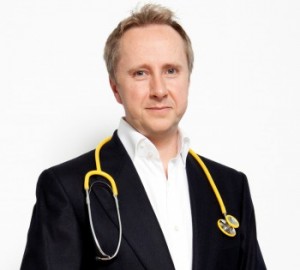Over the last week or so we have been publishing interviews with Dr Rob Hicks on the subject of sleep and related issues. The first , which you can read here, looked at the relationship between diabetes and sleep. The second deals with some of the issues surrounding sleep routines for younger children!
In this interview with Dr Hicks we explore sleep disorders, fatigue and relaxation. Vital to such conditions and multiple sclerosis, rheumatoid arthritis and fibromyalgia among others.
PatienTalk.Org: Ok and moving on from there how would you describe or what is sleep apnoea?
Dr Hicks: Well sleep apnoea is a situation which is often associated with snoring. It is a situation where many, many times in the night for short very periods of time the person stops breathing so a bed partner may notice that the person has temporarily stopped breathing for micro seconds and then the person themselves has a bit of a cough or a bit of a deep breath and they may wake up or they may roll over and go back to sleep. One of the problems with obstructive sleep apnoea is actually that it leaves a person not just tired the following day and at greater risk of accidents but it can actually put somebody’s blood pressure up so it is a contributing factor to heart disease and indeed strokes.
PatienTalk.Org:- Are there other major sleep disorders?
Dr Hicks: Well the main sleep disorder that we come across in general practice is insomnia. A lack of good, refreshing sleep and the underlying cause of that can be a physical problem. It might be arthritis causing pain. It might be a side effect of medication that is being taken for a health problem. It might be noise. It might be too much light. It might be an uncomfy bed or it might actually be an awful lot of worry and that is why the “Good night everyone” campaign from Dunelm is working towards trying to help people find the best way for them as an individual and for them as a family to get a good night sleep and so they can work up refreshed in the morning ready to face the challenges of the day.
PatienTalk.Org: I’ve noticed that you have mentioned fatigue and insomnia go hand in hand. Why do you think that is?
Dr Hicks: What we understand by the process of sleep is it’s a way of regenerating and repairing the body. It’s certainly a time where memories are laid down. It’s a time where basically we give the body a chance to get ready for the next day but if you’re not getting an adequate amount of sleep, and the amount of sleep people need varies from individual to individual so for example for adults it ranges on average 7 – 9 hours a night. For someone in a school, a child in school it’s about 10 hours. For somebody in pre-school so before the age you go to school it’s about 10 – 12 hours. If you are not getting adequate amounts of rest and relaxation than a knock on effect is your body is going to be exhausted.
PatienTalk.Org: Finally, can you suggest any relaxation techniques to help you get to sleep?
Dr Hicks: There are lots of good relaxation techniques. There is deep breathing exercises. There is stretching exercises. There is meditation, visualisation lots of different ways of helping the body relax and unwind and get to sleep but the important thing is that an individual person finds something that is relevant and works for them because it’s not a case of one size fits all. Sometimes you have to try a few things before you come across the one that really works for you as an individual.
PatienTalk.Org: Thank you very much for your time Dr Rob Hicks.

I find that if I take an anti-anxiety medication before I go to sleep at night I have a more restful sleep.